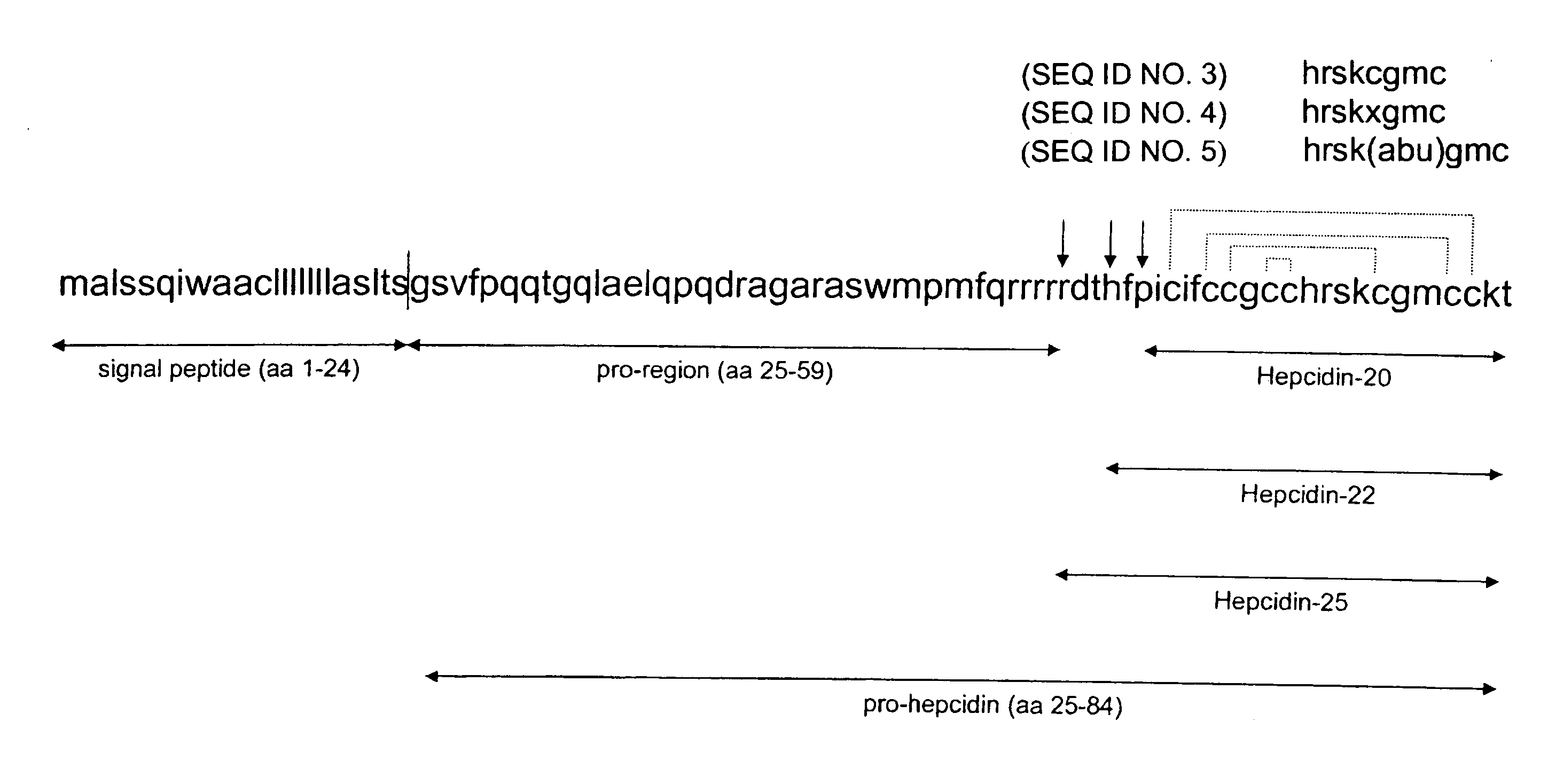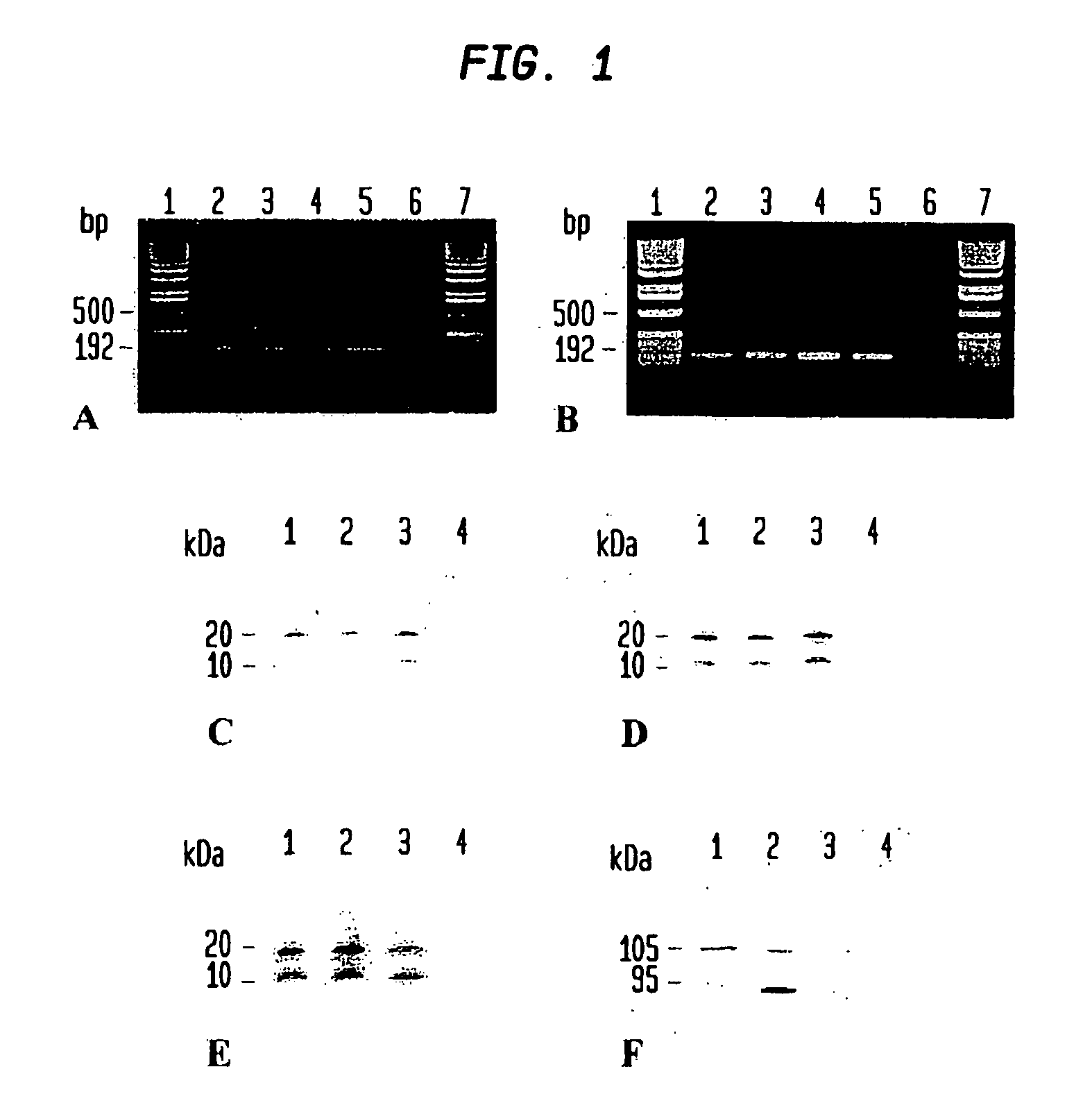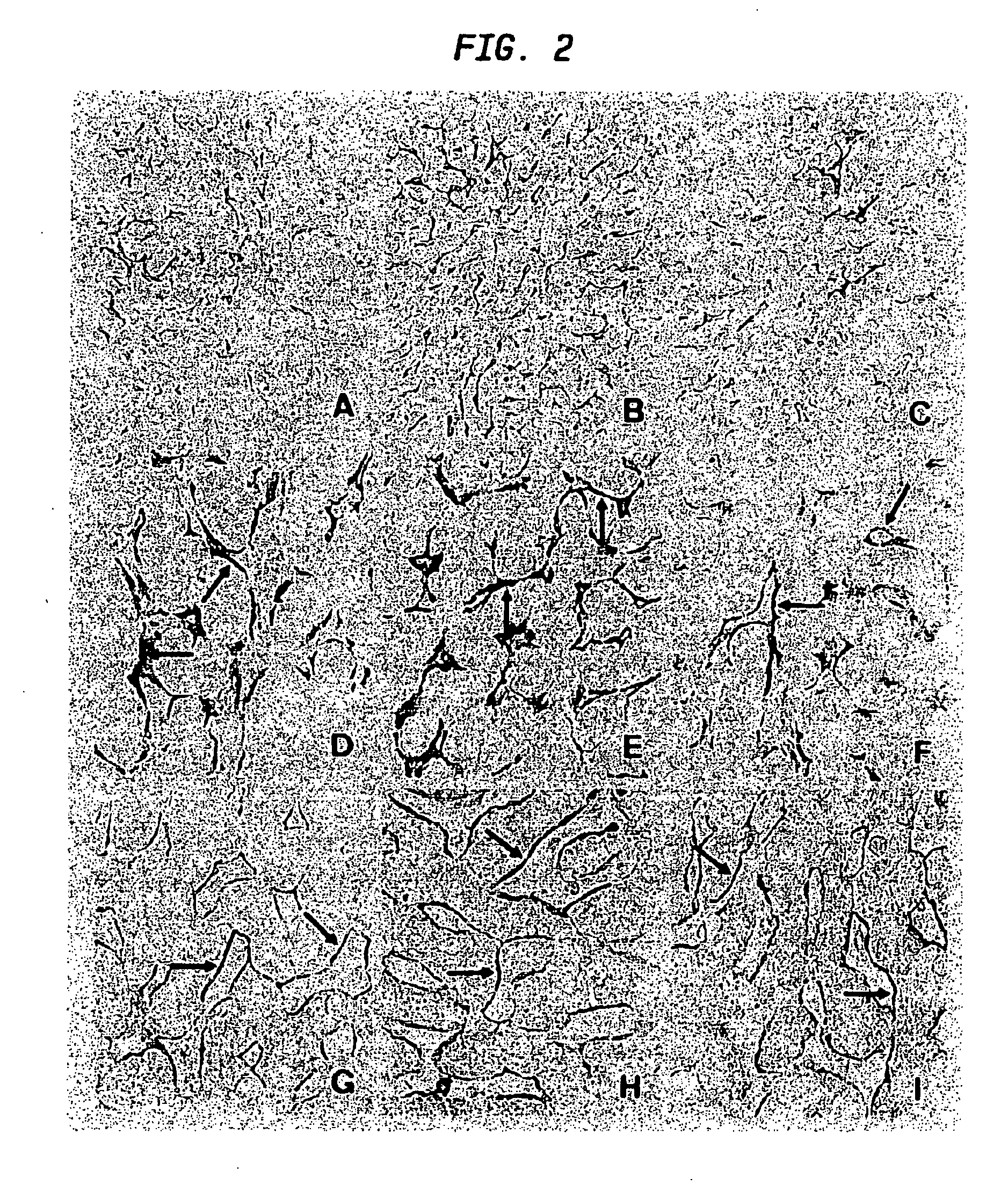Diagnostic methods for diseases by screening for hepcidin in human or animal tissues, blood or body fluids; monoclonal antibodies specific to human hepcidin and associated uses therefor
- Summary
- Abstract
- Description
- Claims
- Application Information
AI Technical Summary
Benefits of technology
Problems solved by technology
Method used
Image
Examples
examples
Tissues and Tissue Preparation
[0174] Human liver samples (n=7) used in the present study were obtained after hemi-hepatectomy in adult subjects with liver metastases. Healthy tissues were fixed in 4% paraformaldehyde for immunohistochemistry or immediately frozen in liquid nitrogen for RT PCR, Western blot and immunofluorescence analysis.
[0175] Guinea pigs (n=7) and mice (n=S) were anesthetized and subsequently sacrificed by cervical dislocation. Tissue specimens from liver, skeletal muscle and heart were resected and immediately frozen in liquid nitrogen for Western blot analysis or fixed in paraformaldehyde.
Peptide Synthesis, Immunization Procedure, and Antibodies
[0176] From the published prohepcidin sequence (Krause et al., (2000) FEBS Lett. 480, 147-150; Pigeon et al., (2001) J. Biol. Chem. 276, 7811-7819), the peptides hepcidin-(28-47) and hepcidin-(70-84) were synthesized as C terminal amides using a standard Fmoc protocol (Cetin et al., (1994), Proc. Natl. Acad. Sci. US...
PUM
| Property | Measurement | Unit |
|---|---|---|
| Molar density | aaaaa | aaaaa |
| Power | aaaaa | aaaaa |
| Power | aaaaa | aaaaa |
Abstract
Description
Claims
Application Information
 Login to View More
Login to View More - R&D
- Intellectual Property
- Life Sciences
- Materials
- Tech Scout
- Unparalleled Data Quality
- Higher Quality Content
- 60% Fewer Hallucinations
Browse by: Latest US Patents, China's latest patents, Technical Efficacy Thesaurus, Application Domain, Technology Topic, Popular Technical Reports.
© 2025 PatSnap. All rights reserved.Legal|Privacy policy|Modern Slavery Act Transparency Statement|Sitemap|About US| Contact US: help@patsnap.com



